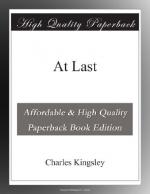Rosa was shaking with internal laughter—she would give no escape except through her dancing eyes.
Indeed, Mr. Dorrance’s was the only staid countenance there, as Mabel said, pleasantly, moving her chair beyond the bounds of the ring, “I, for one, find the combustion of the upper forest growth too powerful, just at this instant. This is a genuine Christmas-storm—is it not? Listen to the wind?”
In the stillness enjoined by her gesture, the growl of the blast in the chimney and in the grove; the groaning, tapping, and creaking of the tree branches; the pelting sleet and the rattle of casements all over the house brought to the least imaginative a picture of out-door desolation and fireside comfort that prolonged the hush of attention. Tom Barksdale’s pretty wife slipped her hand covertly into his tight grasp, and their smile was of mutual congratulation that they were brightly and warmly housed and together. Rosa, preternaturally grave and quiet, lapsed into a profound study of the mountain of red-hot embers. Several young ladies shuddered audibly, as well as visibly, and were reassured by a whispered word, or the slightest conceivable movement of their gallants’ chairs nearer their own.
“I think we have the grandest storms at Ridgeley that visit our continent,” resumed Mabel thoughtfully. “I suppose because the house stands so high. The wind never sounds to me anywhere else as it does here on winter nights.”
Yielding to the weird attraction of the scene invoked by her fancy, she arose and walked to the window at the eastern extremity of the hall, pulling aside the curtain that she might peer into the wild darkness. The crimson light of the burning logs and the lamp rays threw a strongly defined shadow of her figure upon the piazza floor, distinct as that projected by a solar microscope upon a sheeted wall; sent long, searching rays into the misty fall of the snow, past the spot from which she had her last glimpse of Frederic Chilton, so many, many months agone, showing the black outline of the gate where he had looked back to lift his hat to her.
What was there in the wintry night and thick tempest to recall the warmth and odor of that moist September morning, the smell of the dripping roses overhead, the balmy humidity of every breath she drew? What in her present companion that reminded her of the loving clasp that had thrilled her heart into palpitation? the earnest depth of the eyes that held hers during the one sharp, yet sweet moment of parting—eyes that pledged the fealty of her lover’s soul, and demanded hers then and forever? His conscience might have been sullied by crimes more heinous than those charged upon him by her brother and his friends; he might—he had—let her go easily, as one resigns his careless hold upon a paltry, unprized toy; but when her hand had rested thus in his, and his passionate regards penetrated her soul, he loved her, alone and entirely! She would fold this conviction to her torpid heart for a little while before she turned herself away finally from the memories of that love-summer and battle-autumn of her existence. If it aroused in the chilled thing some slight pangs of sentiency, it would do her no hurt to realize through these that it had once been alive.




